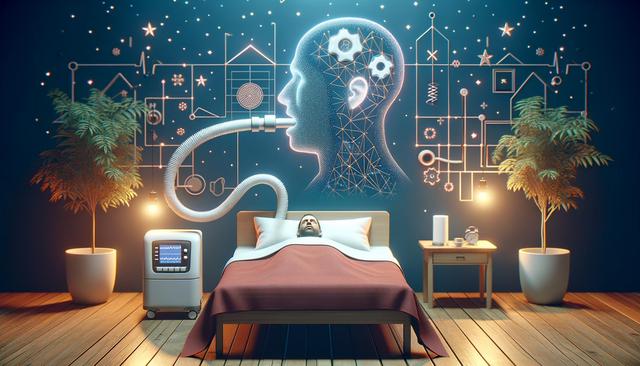What is Sleep Apnea?
Sleep apnea is a condition characterized by repeated interruptions in breathing during sleep. These pauses, known as apneas, can last from a few seconds to over a minute and may occur dozens of times per hour. The most common type is obstructive sleep apnea (OSA), which happens when the muscles in the throat relax excessively and block the airway. Another type, central sleep apnea, is less common and involves the brain failing to send proper signals to the muscles that control breathing.
Common symptoms include loud snoring, gasping for air during sleep, frequent nighttime awakenings, and excessive daytime sleepiness. If left untreated, sleep apnea can contribute to serious health issues such as high blood pressure, heart disease, type 2 diabetes, and depression. Recognizing the signs early and seeking medical advice is crucial for effective treatment.
Diagnosis and Treatment Options
Proper diagnosis of sleep apnea typically involves a sleep study, which can be conducted at a sleep clinic or at home using portable monitoring equipment. These studies track your breathing patterns, oxygen levels, and other vital signs throughout the night. Based on the results, a healthcare provider can determine the severity of your condition and recommend appropriate treatment options.
One of the most effective treatments for moderate to severe sleep apnea is continuous positive airway pressure (CPAP) therapy. This involves using a machine that delivers a steady stream of air through a mask to keep the airway open during sleep. There are several types of sleep apnea masks available, including nasal masks, nasal pillows, and full-face sleep apnea masks. Choosing best sleep apnea mask for your needs can significantly improve comfort and compliance with therapy.
Choosing a Suitable Sleep Apnea Mask
When it comes to selecting the right mask, comfort and fit are essential factors. The best sleep apnea masks are those that provide a secure seal without causing discomfort. Here are a few considerations to keep in mind when choosing:
- Sleep position: Side sleepers may prefer a low-profile design, while back sleepers might benefit from a full-face sleep apnea mask.
- Breathing habits: If you breathe through your mouth, a full-face mask may be more suitable than a nasal option.
- Facial structure: Different mask styles accommodate varying face shapes and sizes.
- Mobility during sleep: Some masks offer greater flexibility and allow more freedom of movement.
Trying different styles and consulting with a sleep specialist can help in choosing best sleep apnea mask tailored to your individual preferences and needs.
Adjusting to CPAP Therapy
Adapting to CPAP therapy can take some time, especially for new users. Initially, the sensation of air pressure or wearing a mask might feel uncomfortable. However, most users find that with consistent use and proper mask fit, they adjust over time and experience significant improvements in sleep quality.
Here are some tips to ease the transition:
- Start by wearing the mask for short periods during the day to get used to the feel.
- Use the ramp feature on your CPAP machine to gradually increase air pressure as you fall asleep.
- Ensure the mask is clean and well-maintained to prevent irritation and improve hygiene.
- Work with a sleep technician to make necessary adjustments for a more comfortable fit.
Choosing best sleep apnea mask from the wide range of available options can also make a big difference in long-term adherence to therapy.
Long-Term Management and Lifestyle Changes
While CPAP remains a cornerstone of sleep apnea treatment, incorporating lifestyle changes can further enhance outcomes. Weight management, for example, is a key factor, as excess weight can contribute to airway obstruction. Regular exercise, a balanced diet, and avoiding alcohol or sedatives before bedtime can also support better sleep quality.
In addition to CPAP, alternative treatments may include:
- Oral appliances that reposition the jaw and tongue to keep the airway open
- Positional therapy to encourage side sleeping
- Surgical options in more severe or treatment-resistant cases
Staying informed, attending follow-up appointments, and being proactive about health can help manage the condition effectively. The availability of various sleep apnea masks, including full-face sleep apnea mask models and more streamlined options, provides flexibility for individuals to find what works best for them.
Conclusion: Supporting Better Sleep and Health
Sleep apnea is a manageable condition when addressed with the right tools and support. Understanding the symptoms, seeking timely diagnosis, and exploring treatment options like CPAP therapy can greatly improve sleep quality and overall health. With a wide range of sleep apnea masks available, including the full-face sleep apnea mask, individuals have the opportunity to find a solution that offers both comfort and effectiveness. Choosing best sleep apnea mask depends on personal needs, but with professional guidance and a bit of experimentation, many find a reliable setup that supports restful, uninterrupted sleep.




Leave a Reply